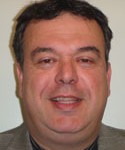
Some of the detrimental effects of heavy alcohol use on brain function are similar to those observed with Alzheimer disease (AD).
Although alcohol use may be a risk factor for AD, it is difficult to study this relationship because of similarities between alcoholic dementia and AD and because standard diagnostic criteria for alcoholic dementia have not yet been developed. Similar biological mechanisms may be involved in the effects of AD and alcohol abuse on the brain. Epidemiological studies have investigated the relationship between alcohol use and AD but have not provided strong evidence to suggest that alcohol use influences the risk of developing AD. Further research is needed before the effect of alcohol use on AD is understood fully.
Regardless, on top of all these detriments, alcohol can also increase the risk of dementia. Although most people associate the term dementia with Alzheimer’s, that is only one form of the brain condition. The term actually encompasses several conditions that can cause memory loss, cognitive impairments, and changes in social function that are caused naturally by aging.
General dementia symptoms include:
Memory loss
Trouble finding words or communicating
Trouble solving problems or reasoning
Trouble handling complex tasks
Difficulty planning or organizing
Changes in coordination or motor function
Disorientation or confusion
Changes in personality
Depression and/or anxiety
Paranoia
Inappropriate behavior
Agitation and restlessness
Hallucinations
While dementia can be idiopathic (from no specific source), there are several subtypes that can be linked directly to alcohol use disorder. This is because drugs and alcohol kill brain cells at a faster rate than age alone. One study found that people who consumed five or more bottles of beer in one sitting, or one bottle of wine, in midlife were three times more likely than people who did not binge drink to have dementia by the time they turned 65. Although Alzheimer’s and alcohol-induced dementia appear similar, their causes are different.
Dementia tied to alcohol use disorder is categorized as alcohol-related brain damage, or ARBD. Consuming large amounts of alcohol prevents neurons from regenerating, so they die. While it can begin in anyone who struggles with alcohol use disorder, this condition is becoming more common among middle-aged and older adults, since people ages 16-24 are drinking alcohol less and abusing different drugs instead.
ARBD is especially problematic for middle-aged women, since alcohol affects women more strongly than men. This is due to differences in hormones, body fat composition, and height/weight ratio between genders. In spite of this, men still receive more diagnoses for ARBD than women, probably related to men drinking more alcohol than women throughout their lives, especially among elderly adults.
Studies from 2010 and 2011 suggested that “moderate” alcohol consumption, specifically of wine or beer, could help to prevent dementia, including Alzheimer’s. However, these studies have been proven wrong; although some nutrients found in soft alcohol may help brain function, consuming ethanol does not. At best, drinking wine or beer in moderate amounts has no effect on brain function later in life.
Another chronic condition that can developed by over drinking is Korsakoff syndrome which is a chronic memory disorder caused by severe deficiency of thiamine (vitamin B-1). Korsakoff syndrome is most commonly caused by alcohol misuse, but certain other conditions also can cause the syndrome. Korsakoff syndrome is often, but not always, preceded by an episode of Wernicke encephalopathy, which is an acute brain reaction to severe lack of thiamine.
Wernicke encephalopathy is a medical emergency that causes life-threatening brain disruption, confusion, staggering and stumbling, lack of coordination, and abnormal involuntary eye movements. Because the chronic memory loss of Korsakoff syndrome often follows an episode of Wernicke encephalopathy, the chronic disorder is sometimes known as Wernicke-Korsakoff syndrome. But Korsakoff syndrome can also develop in individuals who have not had a prior episode of Wernicke encephalopathy.
Scientists don’t yet know exactly how Korsakoff syndrome damages the brain. Research has shown that severe thiamine deficiency disrupts several biochemicals that play key roles in carrying signals among brain cells and in storing and retrieving memories. These disruptions destroy brain cells and cause widespread microscopic bleeding and scar tissue. Most cases of Korsakoff syndrome result from alcohol misuse. Scientists don’t yet know why heavy drinking causes severe thiamine deficiency in some alcoholics, while others may be affected primarily by alcohol effects on the liver, stomach, heart, intestines or other body systems.
Get Help for Alcohol Use Disorder Dementia is only one of many problems associated with alcohol use disorder. This serious condition can cause harm to many organ systems. Getting help with detox, then entering a rehabilitation program is the best way to overcome this chronic disease. Medical professionals, therapists, counselors, and other professionals offer social support and care to end addiction. Therapy to understand how addiction is triggered, and to change behaviors around consuming drugs or alcohol, will help a person maintain sobriety and lead a healthy life.
 Micha Shalev MHA CDP CDCM CADDCT is the co-owner of The Oasis at Dodge Park, Dodge Park Rest Home and The Adult Day Club at Dodge Park located at 101 and 102 Randolph Road in Worcester. He is holding a master degree in health care management and a graduate of the National Council of Certified Dementia Practitioners program, and well-known speaker covering Alzheimer’s and dementia training topics. He can be reached at 508-853- 8180 or by e-mail at m.shalev@dodgepark.com
Micha Shalev MHA CDP CDCM CADDCT is the co-owner of The Oasis at Dodge Park, Dodge Park Rest Home and The Adult Day Club at Dodge Park located at 101 and 102 Randolph Road in Worcester. He is holding a master degree in health care management and a graduate of the National Council of Certified Dementia Practitioners program, and well-known speaker covering Alzheimer’s and dementia training topics. He can be reached at 508-853- 8180 or by e-mail at m.shalev@dodgepark.com



